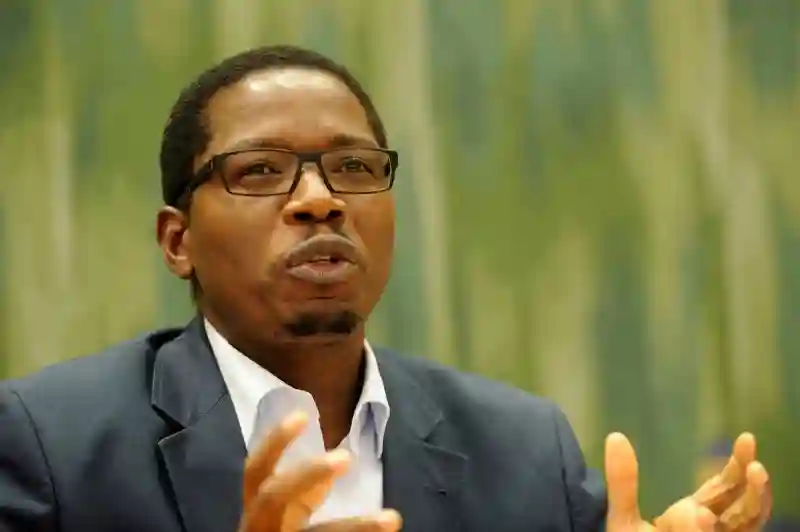Renowned theologian, Reverend Kenneth Mtata, says Nelson Chamisa’s resignation as the leader of CCC may deepen the crisis of multi-party democracy in Zimbabwe.
In a statement in response to Chamisa’s unexpected announcement on Thursday that he was quitting the party, he helped form just two years ago because has been “contaminated” and “hijacked” by the ZANU PF-led government, Mtata said there are a lot of issues Chamisa did not address in his 13-page letter. Below is Mtata’s statement:
Chamisa’s resignation: New beginning or beginning of the end?
Today the leader of the largest opposition party in Zimbabwe, Nelson Chamisa announced his dissociation with the CCC project: “officially, and under my hand, inform you, fellow citizens of Zimbabwe and the world, that, with immediate effect, I no longer have anything to do with CCC.” What are the implications of this announcement?
On one hand, I sincerely sympathise with Nelson Chamisa, who had been quite innovative in trying to navigate an almost impossible political environment.
I hope this is a strategic retreat for renewal. On the other hand, I deeply worry that this could be the beginning, not only of the end of Chamisa’s political career as we know it, but also of the deepening crisis of multi-party democracy in Zimbabwe.
It is both cases, we may be in a CRISIS or an OPPORTUNITY. My views are informed by five observations below.
The MOMENT: The statement carries an important announcement whose magnitude seems to have been missed by the statement itself. The statement fails to name the current moment as a ‘kairos.’ It is indeed a ‘kairos’ moment because, for the first time in the 44-year history of Zimbabwe, we wake up to an upside-down political situation where we have the main opposition party in parliament which is leaderless. We have individual members of Parliament who have a common tag (CCC) but whose organisation is contested in the courts. Do we have two CCCs, one belonging to Tshabangu (with no MPs) and one belonging to Chamisa (who has disowned it)? This national crisis of multi-party democracy. It is more than what Chamisa said. This has huge implications.
The PARTY: The statement only mentions CCC 14 times out of 13 pages even though CCC is supposed to be the main subject. The statement does not say what has happened to the largest opposition party in the country except that “the CCC idea was an idea we prayerfully conceived…meant to place Our God and the Citizens at the centre of all decision making,” but has now “been criminally handed over to ZANU PF”, and “CCC cannot deliver a New Great Zimbabwe!” What exactly has happened to CCC as a party beyond these riddles and innuendos? Has the party been dissolved, or only the leader resigned? Is this statement the result of a decision taken by the party or by Nelson Chamisa alone? What came out of the recent citizens’ “consultations?” Whither CCC? This is the main question. Do we no longer have CCC? What happens to the MPs? Will they join Chamisa or stay in parliament?
The FUTURE: The statement does not say much about the future apart from “I call upon all citizens to rally behind fresh politics.” It says that Chamisa will “remain active in public service. I also remain a loyal citizen listener, freedom advocate, a citizens’ champion and leader”, “asserting your victory, honouring the citizens mandate and God’s calling to provide leadership.” There is a suggestion of some “fresh things we need to do”, and “Fellow citizens, you will be kept posted on the next step.” Who will keep citizens posted, Chamisa or someone else? If Chamisa forms a new party today, will it attract any following or become a major flop? Was CCC not a version of a political party to Chamisa just as MDC was Morgan’s version of a political party? Will any new model catch fire? Could a new focus be bedded? What could it look like?
NATION: Could a new focus be on national processes? A national process built through citizens who are actively engaged, not those waiting for a saviour or messiah? For people to fully engage, they need (a) a shared destination or vision of the Zimbabwe they want, (b) a common understanding of the main obstacles towards reaching it, (c) to know that all their skills, resources, capacities, competences, strategies and actions are required, and (d) what responsibilities, roles, and structures around which their contribution will be organized. Building this process, especially in a complex environment like Zimbabwe, takes a long time and requires collective leadership. This announcement creates an opportunity for collective and credible leadership, maybe not around yet another political party, but a PROCESS (a national re-imagination process). Such a process may attend to the party politics at some point, but what is urgent for most people today are bread and butter issues because of a struggling economy characterised by out-of-control inflation, resulting in increasing violent crime, and desperate citizenry. To address this, the nation needs unity of purpose. Without the cooperation of credible leadership outside the establishment, positive change will be difficult to achieve.
LEADERSHIP: Leadership thrives where the national CAUSE is owned by all people, where designing the COURSE of action is participatory and inclusive, where the COST or burden of the struggle is equally shared, where the CONSTITUTION forms the common ground of engagement and is respected by all. Only then can a new COMMUNITY called Zimbabwe begin to form despite the existing differences. That demands leadership, not to entrench the polarities but one that is humble in victory and gracious in defeat. I hope the ruling party does not see this as an opportunity for narrow power consolidation but as an opportunity to extend a hand to credible alternative voices for nation-building.
More: Pindula News

